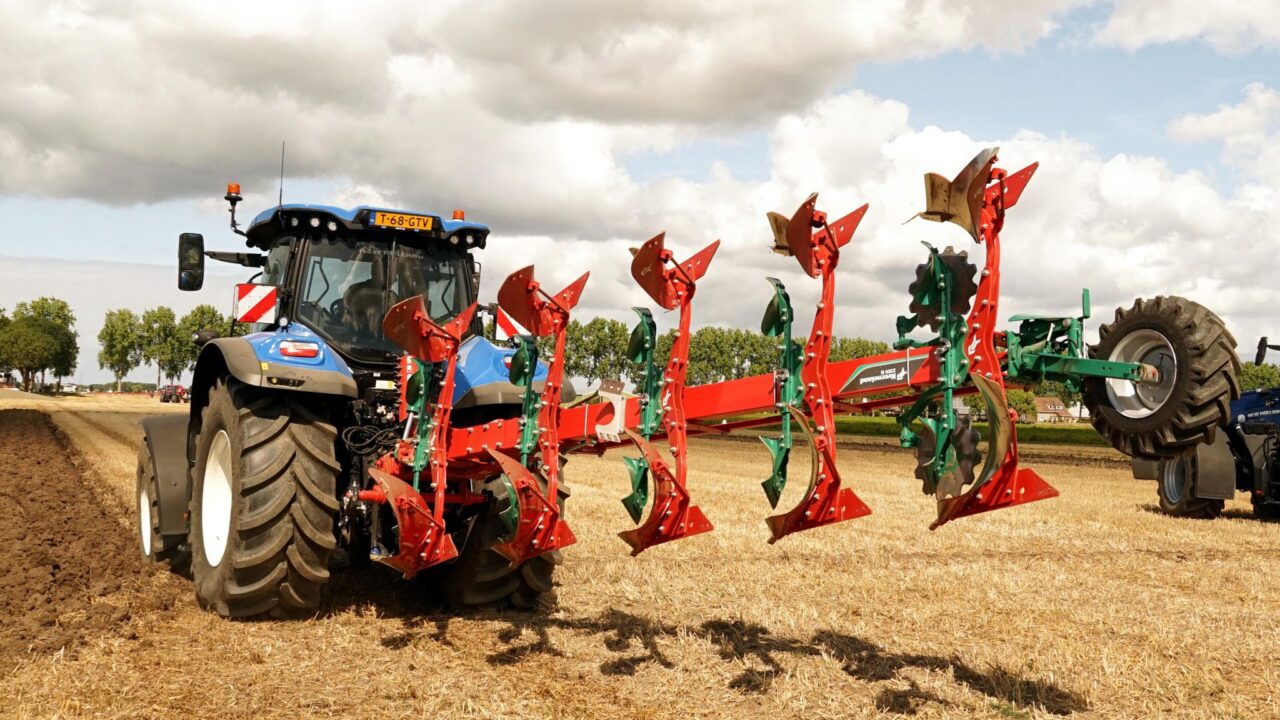This being an Agritechnica year, Kverneland are one of the manufacturers feeling the need to introduce its new items before they are lost in the surge of news from the show itself.
Kverneland has developments in seven main product areas, which it shared with the press recently in The Netherlands.
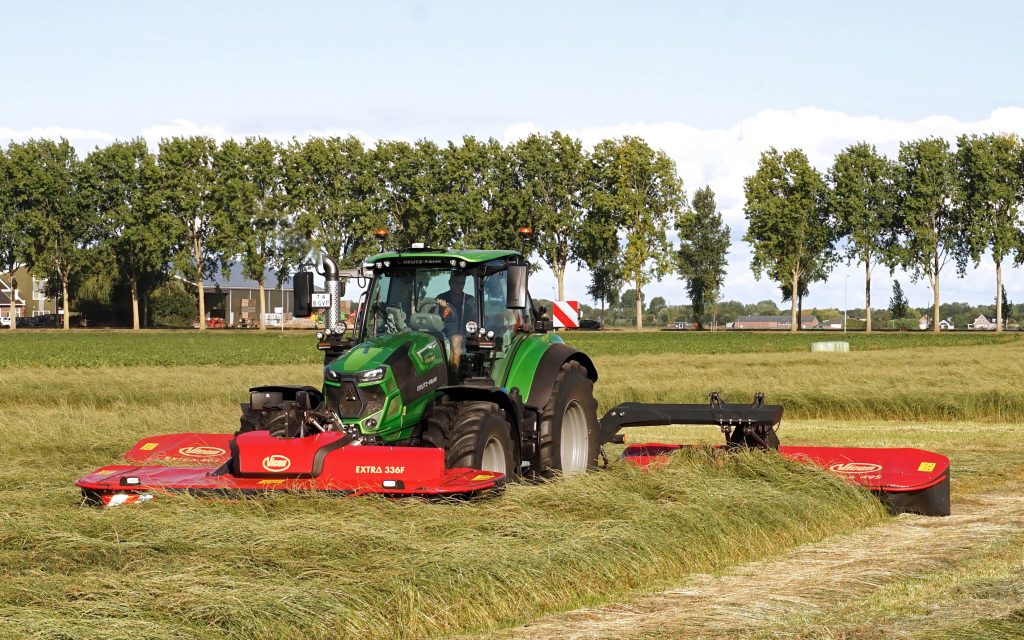
The company’s senior management also took the opportunity to lay out its plans for the future and reassure us all that Kverneland had a bright and independent future within the Kubota group.
There was a lot of detail packed into the event, which will be examined over the course of further articles, but here is a summary of the main points.
Densus balers
Machine-wise, there were several major new products presented: the first being a pair of variable chamber balers; the second was a mechanical weeder; while the third was a ground-up rethink of twin disc spreaders.
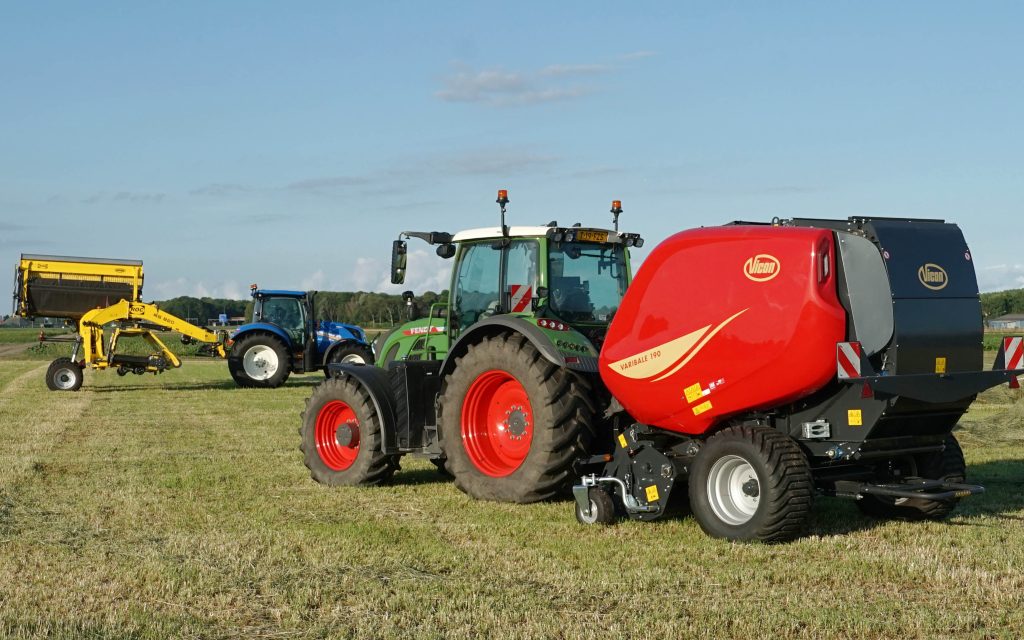
Variable chamber balers on the face of it have many advantages, especially for forage, as they compress and exclude the air throughout the formation of the bale.
Yet they have not always worked well here in Ireland for reasons which Kverneland feel they have addressed over the years.
These new balers are claimed to take the utility of belt balers further and make them suitable for all conditions with TIM (Tractor Implement Management) being highlighted as a major advantage.
Arcadia harrows
To its credit, Kverneland admits that mechanical weeding has not taken off to quite the extent that it thought it would, and the manufacturer is certainly not alone in this.
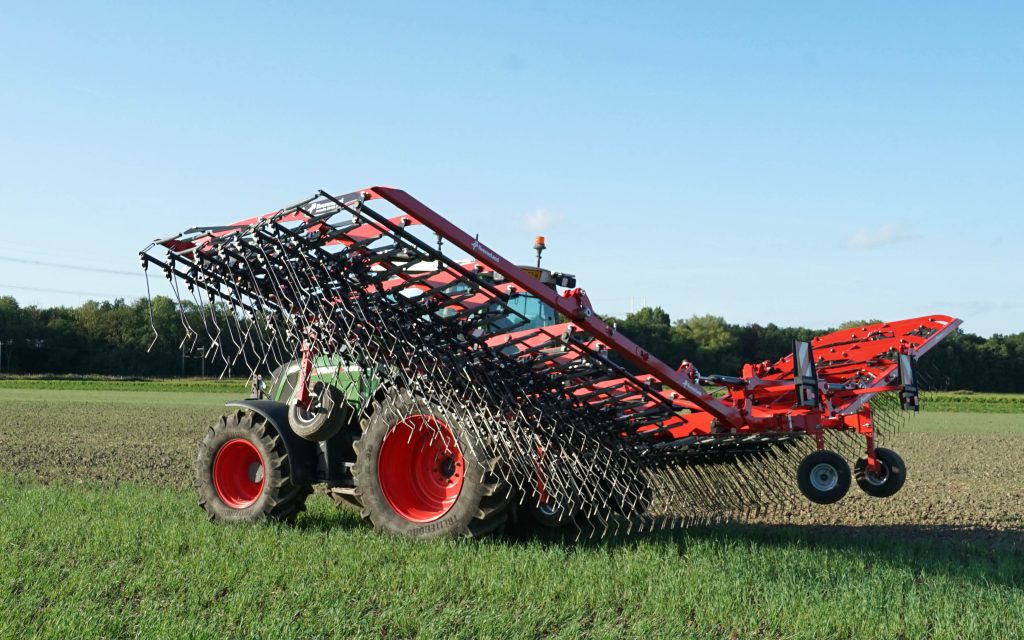
However, Kverneland does believe that resistance to chemical control is increasing and it is because of this that alternative methods have to be developed.
Its latest implement in this area is the Arcadia Precision Harrow – precision not in the sense that it follows the rows of a crop with accuracy but because the pressure and aggression of the tines can be finely tuned.
Alentix disc spreader
The spreader development team at Kverneland are also refreshingly honest in stating that when it comes to fertiliser blends, spreading width and accuracy is limited by the nature of the material rather than the design of the spreader.
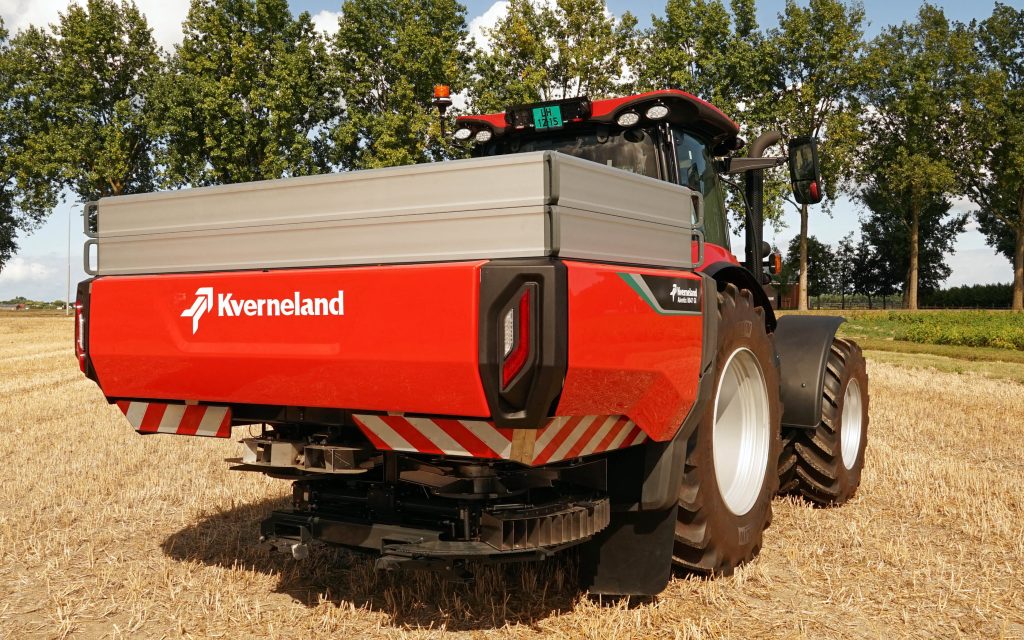
Yet this has not stopped the company recognising that high-capacity spreaders are an important part of the farmer’s implement fleet. As a result, they have brought to market a completely new design.
Known as the Alentix spreader, it has a basic volume of 2,375L, which can be extended up to 4,700L and has a mounting system that places it even closer to the rear of the tractor.
In addition to the brand-new machines noted here, there was a new generation of shear bolt ploughs, plain mowers, and belt groupers from the Italian ROC company, all of which will be looked at in more detail over the next couple of weeks.
